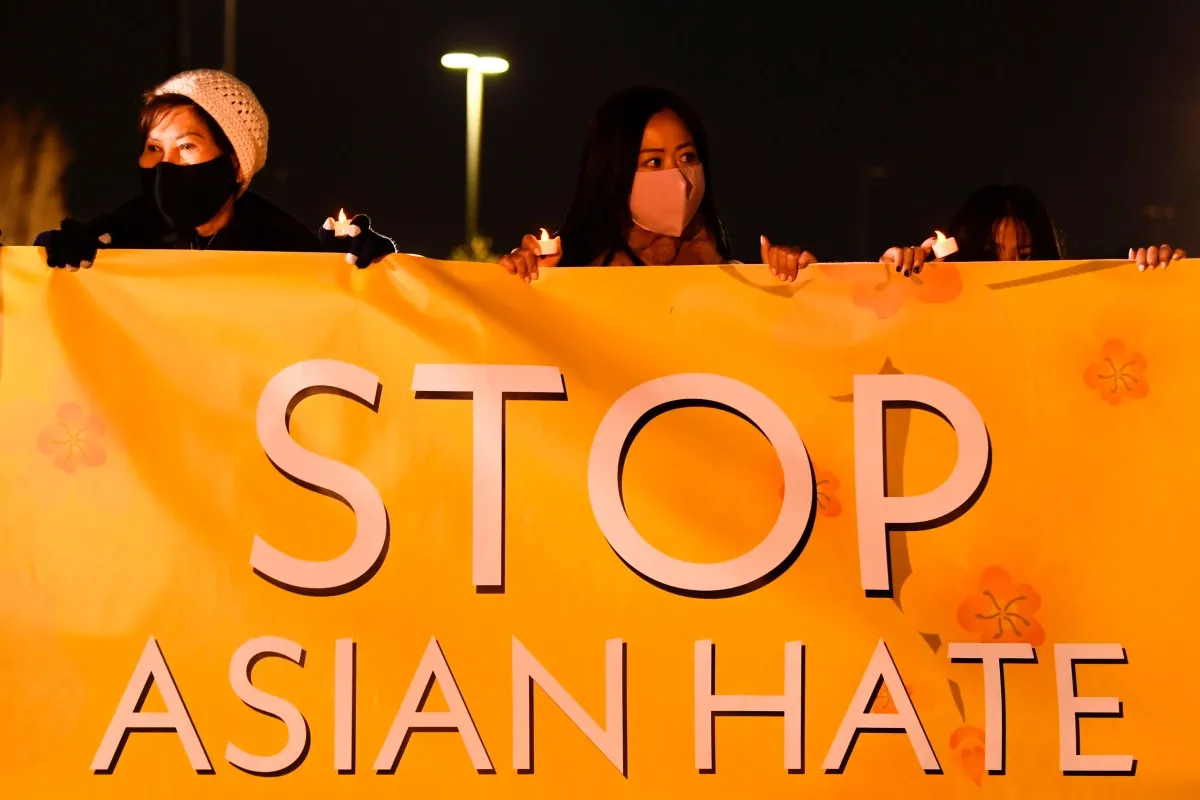Welcome to “We Interrupt Your Brunch,” a series on all the work that remains after Donald Trump’s presidency.
On Tuesday, the Center for the Study of Hate and Extremism at Cal State San Bernardino released a new study of 16 jurisdictions across the country, which found a 164% increase in reports of anti-Asian hate crimes in the first quarter of 2021, compared with the same period in 2020. New York City saw the most significant increase at 223%, followed by San Francisco at 140%, Los Angeles at 80% and Boston at 60%.
The surge in anti-Asian violence has drawn national attention in recent months, as well as important dialogue about the long history of erasure, depoliticization, and at times, weaponization of Asian identity to reinforce white supremacy through popular “model minority” tropes. These conversations have led to vital activism and action on the community level. On the policy level, lawmakers have responded by passing legislation to address anti-Asian violence through hate crime legislation, which activists of color, and many Asian activists, have expressed concerns about.
By investing significant funding into local law enforcement, the recent passage of the COVID-19 Hate Crimes Act in the Senate at the end of last month could actually further harm communities of color, which are disproportionately policed and criminalized. Additionally, as the anti-carceral Asian diaspora advocacy group WeChat Project has pointed out, this investment in policing will likely only continue to erase anti-Asian violence. That’s because, as WeChat Project wrote in a tweet, “As demonstrated by the killings in Fort Wayne and Atlanta, when white people murder Asian people, many chalk it up to ‘senseless violence.’ In fact, police and media often deny the killings were racially motivated at all.”
Anti-hate crime legislation can also have long-term ramifications by bolstering public trust and support for even more investing of public funds into policing, all while racist police violence and killings disproportionately targeting Black people continue across the country. Following the Atlanta shooting that killed six Asian women and other attacks and harassment targeting Asian Americans, police departments in cities like New York and Los Angeles announced they would increase their policing in Asian neighborhoods.
The focus on racist hate crimes—and the term “hate crime” itself—has historically individualized acts of racist violence, and separated them from racist state violence in the forms of police brutality disproportionately targeting Black communities, ICE and anti-immigrant policies, and other policies that disproportionately target and harm Black, Indigenous, Latinx, and Asian communities.
While the racist motivations of acts of violence against Asian people committed by white people are often erased by police and media, acts of violence against Asian people that are committed by non-white people have been followed by escalated demand for carceral solutions, such as more investments in policing and surveillance, which have always been applied violently and disproportionately against Black and brown communities. We can’t forget that the politicians who first placed targets on Asian Americans by blaming them for the spread of COVID-19 are the same politicians who have devoted their careers to sweepingly associating Black and brown people with crime and violence, then enacting legislation to police these communities more heavily.
The aforementioned “model minority” myth attached to Asian Americans has always held deep and intentional roots in white supremacy by weakening solidarity between communities of color, and conditionally rewarding a narrow class of Asian Americans who meet inherently white supremacist standards of excellence. This specific, high-achieving class of Asian Americans is pitted against all other people of color, and used to erase the many Asian Americans who don’t fit the racist, model minority framework, as well as the generational traumas and wide-ranging struggles of diverse Asian communities. Bolstering the racist, anti-Black carceral system and police state to somehow “protect” Asian Americans is an extension of the model minority narrative and its white supremacist goals.
Any and all solutions to acts of interpersonal, racist violence should contextualize rather than isolate them from broader, racist state violence. These solutions should also center the voices of communities of color on what supports they really need—rather than automatically deepen investments in policing, prisons, and surveillance that perpetuate white supremacy.
(image: PATRICK T. FALLON/AFP via Getty Images)
Want more stories like this? Become a subscriber and support the site!
—The Mary Sue has a strict comment policy that forbids, but is not limited to, personal insults toward anyone, hate speech, and trolling.—









Published: May 7, 2021 02:20 pm